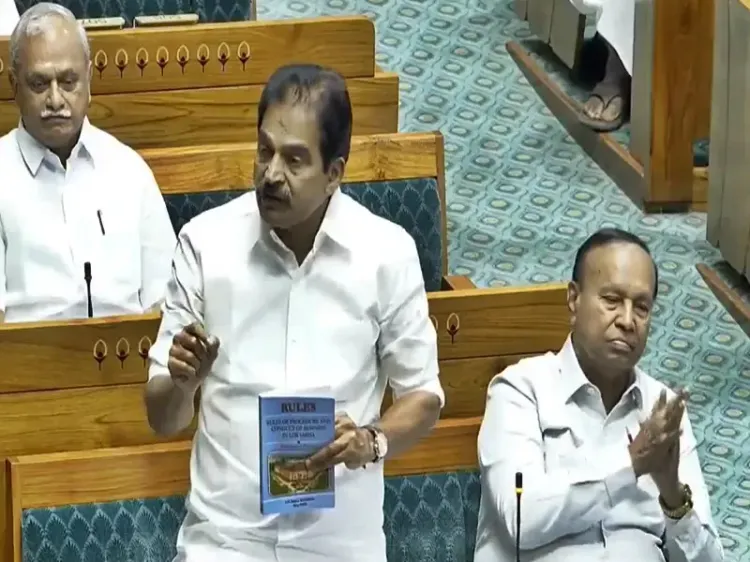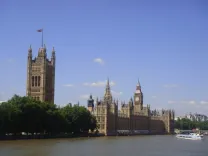Government's Sole Agenda: Dividing Bharat Mata in the Name of Religion, Says KC Venugopal on Waqf Bill

Synopsis
Key Takeaways
- Waqf Amendment Bill criticized for discriminatory motives.
- Accusations of targeting specific communities.
- Concerns over religious freedom and minority rights.
- Call for prioritizing harmony over hatred.
- Highlighting unemployment and poverty as government failures.
New Delhi, April 2 (NationPress) KC Venugopal, Congress MP from Kerala, launched a scathing criticism of the Centre regarding the ‘biased’ Waqf Amendment Bill, expressing that the primary intent behind this controversial legislation is to promote its agenda of hatred and to fragment the nation along religious lines.
The Congress General Secretary, participating in the extended discussion on the Waqf Bill in the Lok Sabha, vehemently opposed the allocation of non-Muslim representatives to the Waqf Board Council and questioned, “Will this not instigate hatred?”
“Your actions are discriminatory and specifically target a particular community. This is a blatant violation of the Constitution,” he asserted, directing his ire towards the BJP and the Central Government.
Venugopal also referenced the Vaishno Devi Temple Act to support his assertions of perceived discrimination against the Muslim community.
“According to the Vaishno Devi Act, the Lieutenant Governor, who holds the ultimate authority over the revered temple, must be a practicing Hindu. If he is not, then any other esteemed official must be from the Hindu faith,” he articulated.
He mocked Minority Affairs minister Kiren Rijiju for his claims of support from the Kerala Catholic Bishops’ Council (KCBC) for this legislation, pointing out that many churches have faced attacks under successive BJP administrations, “yet you have failed to take action against the perpetrators.”
“Today, the legislation targets Muslims. Tomorrow, it could extend to other minorities, including Christians and Sikhs,” he cautioned.
The Congress MP also criticized the Sangh Parivar, alleging that it provides covert support to this legislation, claiming that the BJP's hidden agenda is to undermine the minorities in the country and infringe upon their religious freedoms.
He remarked, “The Modi government claims it aims to make the country a global leader, yet such regressive policies will only tarnish India's reputation on the international stage.”
“Attacking religious freedom will have severe repercussions. The government should prioritize peace, harmony, and brotherhood rather than inciting hatred,” he emphasized.
Additionally, he held the government accountable for issues such as unemployment and poverty, highlighting that the youth are struggling to find jobs and farmers are suffering, while the government’s only agenda remains to divide the nation along religious lines.
He also pointed out Rijiju's numerous statements regarding the ‘non-discriminatory’ essence of the bill, suggesting that such claims indicate an admission of guilt.
Rijiju has consistently stated that this bill does not target any religion. If it is not aimed at Muslims, then why does it seem that guilt lingers in your statements?” he questioned.






